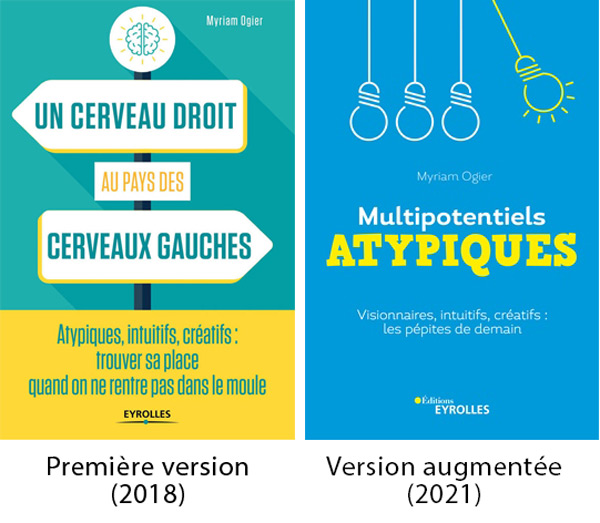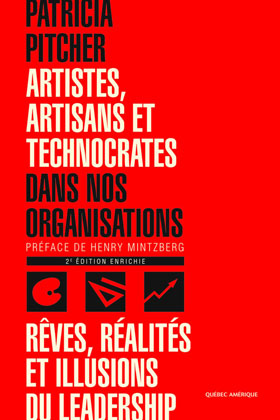Dans la lignée du précédent article publié sur mon blog soulignant l’intérêt de lire les grands auteurs et philosophes, en voici un autre montrant l’impact de la réflexion philosophique et de l’introspection sur le management et les comportements.
Au moment où de plus en plus de personnes souffrent du manque de sens dans leur travail au quotidien, il me paraît utile d’en retrouver, en ayant des repères forts, en s’appuyant sur des valeurs universelles. Il est temps de relire nos classiques.
Havard Business Review – David Brendel – September 19, 2014
The goal of most executive coaching and leadership development is behavior change—help the individual identify and change the behaviors that are getting in the way of, and reinforce the behaviors associated with, effective leadership. But what about the beliefs and values that drive behavior?
The benefits of introspection and reflection on one’s own character and beliefs receive less attention in a typical coaching session than the benefits of behavior change. Perhaps this is not surprising in our fast-paced and technology-driven business world, where there is little time to stop and think, and where people want (and are paying for) immediate outcomes. Despite growing recognition of the benefits of “mindfulness” activities (such as yoga and meditation) and an introverted style, self-reflection on philosophical issues—such as values, character virtues, and wisdom—is relatively neglected. Executive coaching and leadership development programs rarely include much, if anything, about the power of clarifying one’s philosophical world-view. But there is mounting evidence that they should.
Neuroscience research on self-reflection supports this notion. A recent study reported in BMC Neuroscience revealed that a critical brain region—the anterior cingulate cortex (ACC) —was activated during self-reflection tasks. The ACC is essential because, as the researchers noted, it can “detect discrepancies between the actual and the desired state,” “mediate integration and evaluation of emotional, motivational, and cognitive information,” and “modulate attention.” Activating the ACC via self-reflection, in other words, can promote business success by helping leaders to identify their values and strategic goals, synthesize information to attain those goals, and implement strong action plans.
Clearly, most self-reflection doesn’t occur in laboratory settings—it must be adapted to the C-suite and other work situations. An exciting way to do this in a focused and intensive manner is via “philosophical counseling.” A growing international movement, philosophical counseling has been called “therapy for the sane” because it helps rational, mentally healthy individuals to clarify their world-views and goals in the face of challenges and transitions. Philosophical counselors and their clients engage in structured conversations that incorporate self-reflection on values and goals. Drawing on ancient philosophers of Eastern and Western traditions (from Socrates to Confucius), as well as contemporary philosophers, it supports people’s development of their own personal philosophies and empowers them to reach their highest human aspirations and ideals.
Consider a CEO who demeans his colleagues by rolling his eyes at them, interrupting them, and otherwise devaluing their roles. He now faces a thorny ethical challenge for the company, one that could damage its financial position and reputation. The CEO has nowhere to turn to discuss the dilemma, because he has alienated his executive team. Philosophical counseling could help him to curtail his obnoxious behaviors and improve his “positivity ratio” by facilitating self-reflection on his character and values. A CEO client in this situation found that contemplating the teachings of an ancient philosopher (Socrates) and a 20th century philosopher (Habermas) empowered him to implement an enhanced process of dialogue, consensus building, and “communicative rationality” with his leadership team. Philosophical reasoning, coupled with positive behavior changes, positioned him to lead the firm through a treacherous time.
Philosophical self-reflection is essential at inflection points in one’s career, when a leader faces a serious challenge, dilemma, or crisis. How can leaders benefit from this kind of self-reflection without necessarily entering into a formal engagement with a philosophical counselor? They first need to pause and contemplate their core values. The works of a range of philosophers, (female and male, from many cultural traditions) can help. As an example, I often suggest my “SANE” mnemonic, drawing on key questions posed by preeminent Western philosophers: Socrates, Aristotle, Nietzsche, and the Existentialists.
Socrates: What is the most challenging question someone could ask me about my current approach?
Aristotle: What character virtues are most important to me and how will I express them?
Nietzsche: How will I direct my “will to power,” manage my self-interest, and act in accordance with my chosen values?
Existentialists (e.g., Sartre): How will I take full responsibility for my choices and the outcomes to which they lead?
This is no academic exercise, but should have “cash value” in the real world. By reflecting seriously on these questions, the CEO discovered a structured format to handle the financial and ethical dilemma facing the firm. He realized that he viewed “respect for others” and “modesty” as among his core values and desired virtues, prompting him to curtail his demeaning behaviors and hold productive discussions with his team about next steps. This ultimately yielded a consensus and reasoned decision-making. By taking responsibility for reflecting on his values and choices for how to collaborate, the CEO completely transformed the situation and solidified his leadership role.
Like “mindfulness” activities, self-reflection requires time and effort. But it doesn’t call for an intentional shutting down of thought. Instead, it requires the leader to think rigorously about profound philosophical issues like value and purpose. The reward of self-reflection is what Aristotle called phronēsis (“practical wisdom”). Contemplating timeless philosophical values can fuel timely behavior changes in the service of growth and lasting success.





Laisser un commentaire